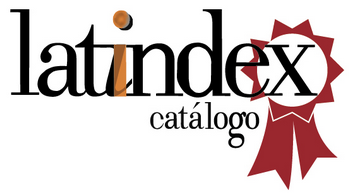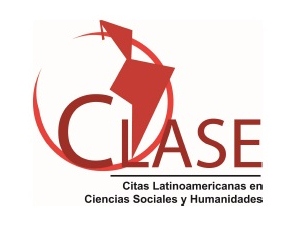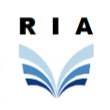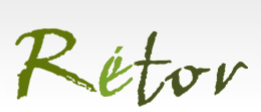Sobre las cuestiones en pragma-dialéctica estándar
Resumen
El propósito del artículo es añadir el concepto de cuestión a la pragma-dialéctica estándar de forma tal que el concepto, hasta ahora básico, de punto de vista pueda ser definido mediante aquél. Con ello el concepto de cuestión se vuelve el concepto básico de la pragma-dialéctica estándar. Siendo básico, el concepto de cuestión no puede definirse. Sin embargo, sobre él se pueden decir algunas cosas que ayuden a entender cómo funcionaría el concepto dentro de la pragma-dialéctica estándar. Tal es la tarea que pretende cumplir el cuerpo del artículo. Entre las propiedades más importantes de las cuestiones que juegan un papel en la argumentación hay que mencionar las siguientes: las discusiones arrancan siempre de cuestiones; ninguna cuestión subsiste sola sino que es siempre parte de una red de cuestiones; hay siempre un grado de especificidad para cada cuestión, la cual es crucial para la discusión; las cuestiones no se dejan nunca verbalizar por completo; el concepto de información de fondo se basa en la especificidad de las cuestiones. Estas propiedades parecen depender de que las cuestiones se conceptualicen correctamente como objetos abstractos, siendo entonces necesario que se las distinga de las preguntas como actos de habla.Citas
Alon, U. (2009). How to choose a good scientific problem. Molecular Cell 35 (6), 726-729.
Carnap, R. (1928). Der logische Aufbau der Welt. Berlin-Schlachtensee: Weltkreis-Verlag. [Engl. transl. by R. A. George: The logical structure of the world. Berkeley: University of California Press, 1967.]
Chamberlin, T. C. (1890). The method of multiple working hypotheses. Science 15 (366): 92-96.
Clementson, D. E. (2018). Deceptively dodging questions: A theoretical note on issues of perception and detection. Discourse & Communication 12 (5), 478-496.
Collingwood, R. G. (1939). An autobiography. Oxford: Clarendon Press.
Creath, R. (Ed.) (1991). Dear Van, Dear Carnap: The Quine-Carnap correspondence and related work. Berkeley: University of California Press.
Eemeren, F. H. van (2010). Strategic maneuvering in argumentative discourse: Extending the pragma-dialectical theory of argumentation. Amsterdam: John Benjamins.
Eemeren, F. H. van, & Grootendorst, R. (1983). Speech acts in argumentative discussions. Amsterdam: Foris.
Eemeren, F. H. van, & Grootendorst, R. (2004). A systematic theory of argumentation: The pragma-dialectical approach. New York: Cambridge University Press.
Eemeren, F. H. van, & Snoeck Henkemans, A. F. (2017). Argumentation: Analysis and evaluation. 2nd edition. New York: Routledge.
Finocchiaro, M. (1980). Galileo’s art of reasoning: Rhetorical foundations of logic and scientific method. Dordrecht: Reidel.
Geach, P., & Black, M., translators (1960). Translations from the philosophical writings of Gottlob Frege. Oxford: Basil Blackwell.
Gigerenzer, G. (1993). The Superego, the Ego, and the Id in statistical reasoning. In G. Keren & C. Lewis (Eds.), A handbook for data analysis in the behavioral sciences: Methodological issues (pp. 311-339). Hillsdale (NJ): Lawrence Erlbaum.
Gilbert, M. A. (1999). Gilbert, M. A. 1999. Reply to Sharon Bailin’s ‘Truth and reconciliation: Some comments on coalescence’. OSSA 1999: Argumentation at the century’s turn. Retrieved from https://scholar.uwindsor.ca/ossaarchive/OSSA3/papersandcommentaries/65/ on 8 March, 2020.
Inwagen, P. van (2008). How to think about the problem of free will. The Journal of Ethics 12 (3-4), 327-341.
Kahane, H. (1984). Logic and contemporary rhetoric: The use of reason in everyday life. 4th edition. Belmont (CA): Wadsworth.
Kerbrat-Orecchioni, C. (2004). Introducing polylogue. Journal of Pragmatics 36 (1), 1-24.
Kluge, E.-H. W., translator (1971). Gottlob Frege: On the foundations of geometry and Formal theories of arithmetic. New Haven: Yale University Press.
Lawn, B. (1993). The rise and decline of the scholastic ‘quaestio disputata’ with special emphasis on its use in the teaching of medicine and science. Leiden: Brill.
Leal, F. (2019). On philosophical argumentation: Towards a pragma-dialectical solution to a puzzle. Journal of Argumentation in Context 8 (2), 173-194.
Leal, F. (2020a). ¿Qué es una postura en filosofía? Un enfoque pragma-dialéctico. Revista Iberoamericana de Argumentación 21, 80-106.
Leal, F. (2020b). On the importance of questioning within the ideal model of critical discussion. Argumentation 34 (4), 405-431.
Lewiński, M., & Aakhus, M. (2014). Argumentative polylogues in a dialectical framework: A methodological inquiry. Argumentation 28 (2), 161-185.
Matthews, P. H. (1974). Morphology. Cambridge (UK): Cambridge University Press.
Novikoff, A. J. (2013). The medieval culture of disputation. Philadelphia: University of Pennsylvania Press.
Platt, J. R. (1964). Strong inference. Science 146 (3642), 347-353.
Quine, W. V. O. (1981). Mathematical logic. Revised edition. Cambridge (MA): Harvard University Press.
Rogers, T., & Norton, M. I. (2011). The artful dodger: Answering the wrong question the right way. Journal of Experimental Psychology: Applied 17 (2), 139-147.
Russell, B. (1914). Our knowledge of the external world as a field for scientific method in philosophy. Chicago: Open Court.
Saran, R. (1985) The use of archives and interviews in research on educational policy. In R. G. Burgess (Ed.), Strategies of educational research: Qualitative methods (pp. 207-241). London: Falmer Press.
Walton, D. N. (1998). The new dialectic: Conversational contexts of argument. Toronto: University of Toronto Press.
Walton, D. N., & Krabbe, E. C. W. (1995). Commitment in dialogue: Basic concepts of interpersonal reasoning. Albany: State University of New York Press.
Weijers, O. (2013). In search of the truth: A history of disputation techniques from antiquity to early modern times. Turnhout: Brepols.
Ziliak, S. T., & McCloskey, D. N. (2008). The cult of statistical significance: How the standard error costs us jobs, justice, and lives. Ann Arbor: University of Michigan Press.
Una vez que un texto es aceptado para su publicación en Quadripartita Ratio, sus autores deben firmar dos documentos de carácter legal: una Licencia de uso y una Declaración de autoría.
Con la Licencia de uso, los autores autorizan la publicación de su obra y la difusión de ésta (integración en bases de datos, difusión en nuestras redes sociales, reediciones posibles, etc.). No obstante, se autoriza la descarga, reproducción y distribución de todos nuestros contenidos publicados, siempre que no se modifique el contenido y se indique su origen (nombre de la revista, volumen, número, páginas y dirección electrónica del documento).
Con la Declaración de autoría, los autores manifiestan que la obra es de su autoría, original e inédita.









